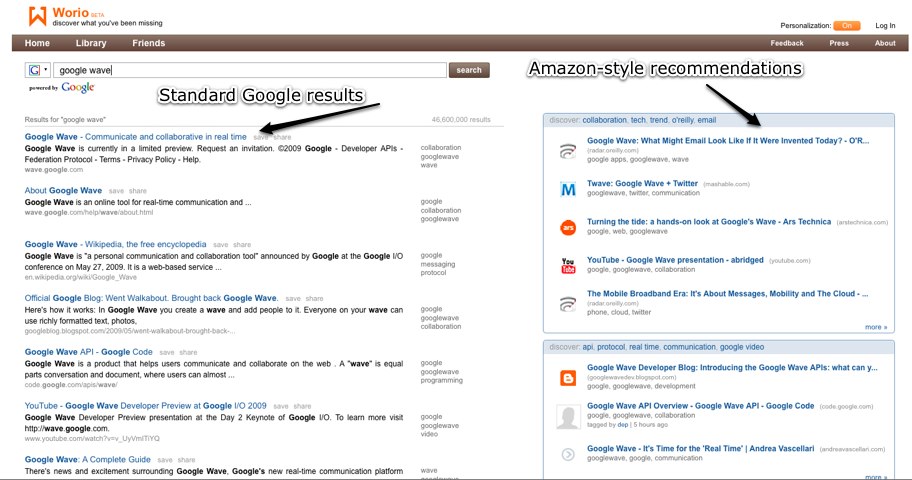Worio: Search company aims to enhance the engines, not challenge them

Anytime I get pitched on some sort of new "search engine," I can't help but react with a bit of skepticism. Inevitably, once we get past the talk of algorithms, a unique user interface and better results, I always have to ask the $64,000 question: How do you plan to get people to use something other than Google?
Even Microsoft and Yahoo, which presumably have greater resources to challenge Google in search than does a small start-up, is struggling to do it. So, when I posed that question to Ali Davar, CEO of Worio, a small Vancouver-based company that's working to enhance search results, I have to say I was pleasantly surprised at how the conversation turned.
Davar and team are looking at search from an angle that doesn't have "Beat Google" written all over it. As much as they'd love to get everyone to migrate away from Google or Yahoo or Bing to come over and start conducting searches on Worio, they're smart enough to realize that that's an unrealistic goal.
The Worio site already incorporates search from those three engines into its site. It's value-add comes in the ability to learn more about your searches and do more than just refine the results. This "discovery engine" goes out and scours the Web for documents, news stories and other types of online content that wouldn't necessarily appear in the results for a keyword search but might seem like a good fit given the other searches you've been conducting.
Plug-ins to browsers or the search engines are obvious ways to get the discovery results into the Google page or Yahoo page you're already using for search. That's an obvious.
But, frankly, Davar and team are hoping to build out the technology to a point where a bigger player - Microsoft? Yahoo? Google? - might come in and buy the technology or the whole company. Davar makes a good point when he talks about Microsoft's desire to go after Google on search. But instead of trying to build everything in-house, Davar thinks that Microsoft should send out a message to the techies that they are in search of new technology to enhance search.
I agree.
Microsoft could take some of that money that they were going to use to buy Yahoo and start swooping up some search enhancing technology that they could incorporate into Bing in order to differentiate it from Google. Maybe Microsoft and others are eyeing the start-ups and they're just not telling me (or Davar, for that matter.) If they're not, it wouldn't be a bad idea to check out what some of the start-ups on working on.
Back in the boom years of 1999-2000, Silicon Valley was alive with entrepreneurs whose sole goal was to be bought by a bigger company. I see nothing wrong with that. If a start-up can get the technology started and making it appealing enough to a larger player, why not sell it, let them incorporate it into their existing product and take your new fortune to start working on the next big thing.
Search needs a spark of new life. Mobile search and local search are helping to refine it into something more useful. This doesn't mean that Worio is the end-all solution for a Google or Microsoft. But it's something I would consider using if I didn't have to change my surfing habits too much just to get it.
